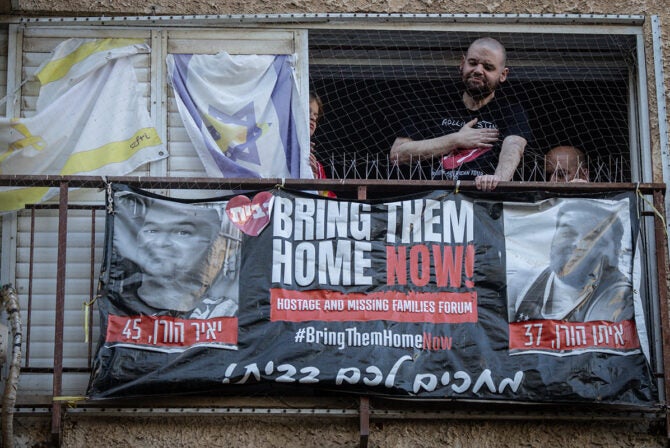What is a miracle, exactly? Generally speaking, Jewish tradition recognizes two categories of the concept: supernatural, out-of-the-ordinary events, like the splitting of the Red Sea during the Passover story, and a more subtle but no less incredible series of events that are carried out by humans, God’s creations.
Some well-known miracles in Jewish tradition include the oil meant to last for one day lasting for eight in the Hanukkah story. There’s also the Purim story, a famous example of God’s actions in the background.
With this list of baby names from a variety of Jewish languages from around the world to honor our people’s diverse heritage, you can be inspired by incredible stories, events and Jewish figures connected with miracles. A new baby is, after all, a miracle in and of itself.
Girls’ names
Alta (Yiddish): “Old.” This name was given to sick girls in Ashkenazi tradition to fool the Angel of Death and provide miraculous healing.
Devora (Hebrew): “Bee.” Deborah was the Jewish judge who helped lead a miraculous victory in battle.
Esther (Persian): “Star,” referring to the Purim heroine of Esther.
Estirola (Judeo-Greek/Romaniote): Romaniote variant of Esther.
Hallel (Hebrew): “Praise.” Can be a reference to the prayers of praise to commemorate the miracles of Passover and Hanukkah.
Herut (Jewish Amharic): “Freedom.” Referring to the freeing of the Jewish slaves during the Passover story.
Hodaya (Hebrew): “To praise God.”
Judith (Hebrew): “Jewish.” In honor of Judith in the story of Hanukkah.
Lital (Hebrew): “My dew.” The hope for the miracle of dew and rain.
Manna (Hebrew and used in Judeo-Italian): The miraculous food given to the Jews in the Exodus story to sustain them.
Merjam (Ladino/Judeo-Spanish): Ladino variant of Miriam.
Najiya (Judeo-Arabic): “Saved.”
Nessa (Hebrew): “Miracle.”
Toiba (Yiddish): “Dove.” Remembering the story of Noah’s Ark.
Boys’ names
Ageze (Jewish Amharic): “He helped.”
Elim (Hebrew): “The place of Elim,” the station where the Jews camped before the parting of the Red Sea, where enough water and date palms existed to feed everyone.
Elisha (Hebrew): “God is my salvation.” Elisha was a prophet who performed miracles.
Hidai (Hebrew): “A praise.”
Itzik (Yiddish): “Laughter,” a reference to the miraculous fulfilment of a long-sought child.
Jonah (Hebrew): “Dove.” Jonah miraculously survived being eaten by a sea creature.
Mottel (Yiddish): Yiddish diminutive of Mordechai. In the famed “Fiddler on the Roof,” Mottel sings through the miracles of Jewish history.
Nissim (Hebrew): “Miracle.”
Palti (Hebrew): “Delivered.”
Pesach (Hebrew): “To pass over,” honoring the miracles of the Passover holiday.
Samson (Hebrew): A Biblical figure with miraculous strength.
Shmaya (Hebrew): “God heard.” The prophet Shmaya helped stop an army.
Shunem (Hebrew): “The town Shunem,” where Elisha performed the miracle of bringing a person back to life.
Tzur (Hebrew): “Rock,” a reference to “Maoz Tzur,” a song commemorating the Hanukkah miracles.
Gender neutral names
Maayan (Hebrew): “Water spring,” referring to a miraculous spring that followed the Jews in the desert.
Neri (Hebrew): “Candle,” in honor of the Hanukkah miracle of lights.
Or (Hebrew): “Light.”
Sinai (Hebrew): Various meanings; the mountain where the Torah was received.
Zohar (Hebrew): “Radiance.” The Zohar is a collection of Jewish mystical thought that often touches on miracles in mysticism.








